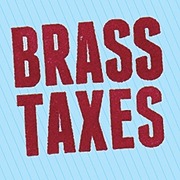What expenses can I take for my car other than mileage? What if I drive for Uber or Lyft?
Income & Expenses
What expenses can I take for my car other than mileage? What if I drive for Uber or Lyft?
If you drive a car, truck, or SUV for business purposes, chances are you can deduct a percentage of your auto expenses.
Updated 1 week ago
When it comes to claiming auto expenses for business use of your car, we've got two methods to choose from: the standard mileage rate or actual expenses.
Standard mileage is the rate the government sets for operating a vehicle. It often provides the best tax result, and it factors in the cost of gas, maintenance, and insurance. Additionally, you can take the following expenses:
Parking fees
Tolls
Interest on loans
Personal property tax
The other option is to lay out your actual expenses, i.e. all the money you spent on the car in a given year. In most cases, this method will actually result in a lower business expense than the standard mileage rate, so if you're not sure, go with standard mileage and we can talk more in your appointment.
If you use the actual expense method you can include things like:
Maintenance and repairs
Tire and oil changes
Gas
Insurance
Registration fees
Rental or lease payments
Vehicle loan interest
Depreciation
Garage rent
And if you drive for a ridesharing company like Uber or Lyft, you may be eligible to claim additional operating expenses, regardless of which of the above methods you use:
Cell phone plans, chargers, dashboard mounts
In-car food and drink items for passengers
Hand sanitizer and partitions
First aid kits
Third-party apps to track mileage
Tools for car maintenance (tire pump, jumper cables)
Roadside assistance
The most important thing to remember with auto expenses is that you've got to track your mileage and keep good records for your additional expenses.
Determining which method is the most advantageous for you and understanding which expenses are allowable given your line of work are not always straightforward. Ask your tax preparer or email info@brasstaxes.com to get the best advice for your situation!

